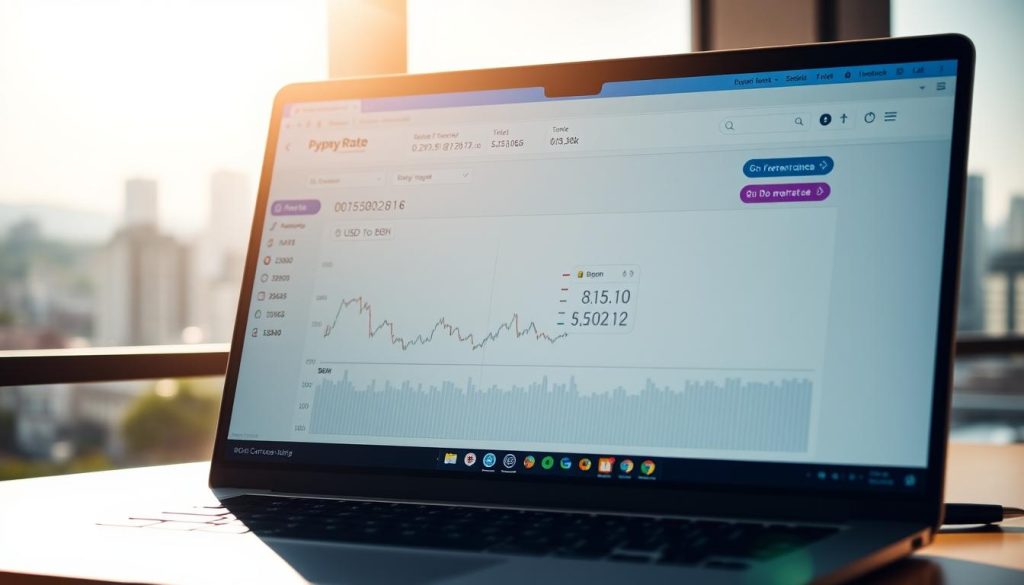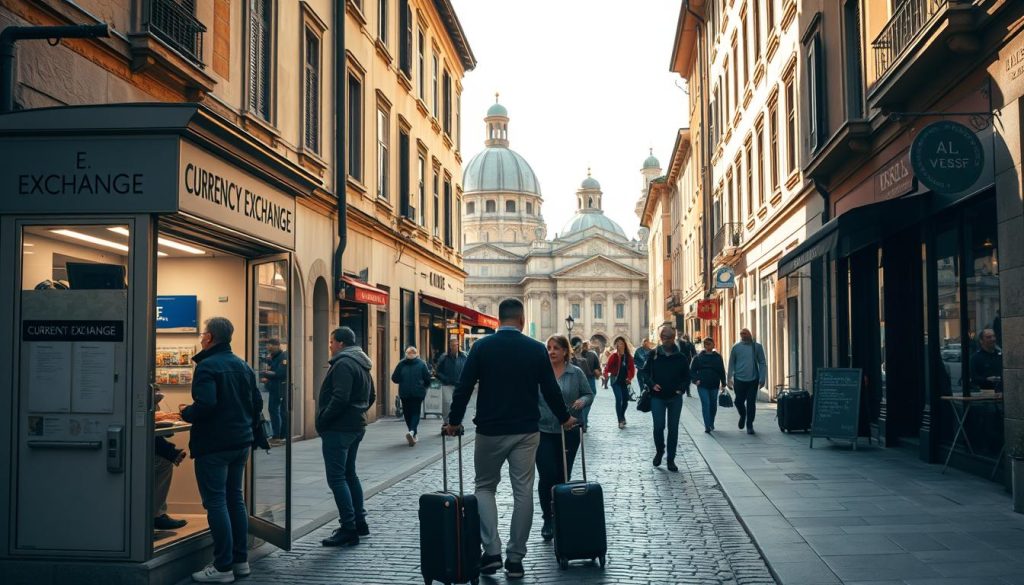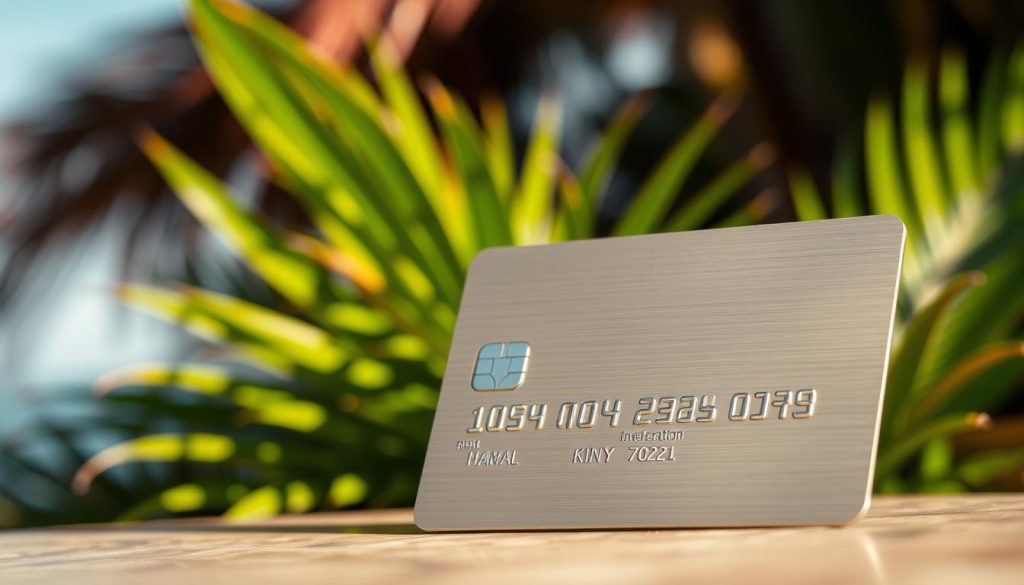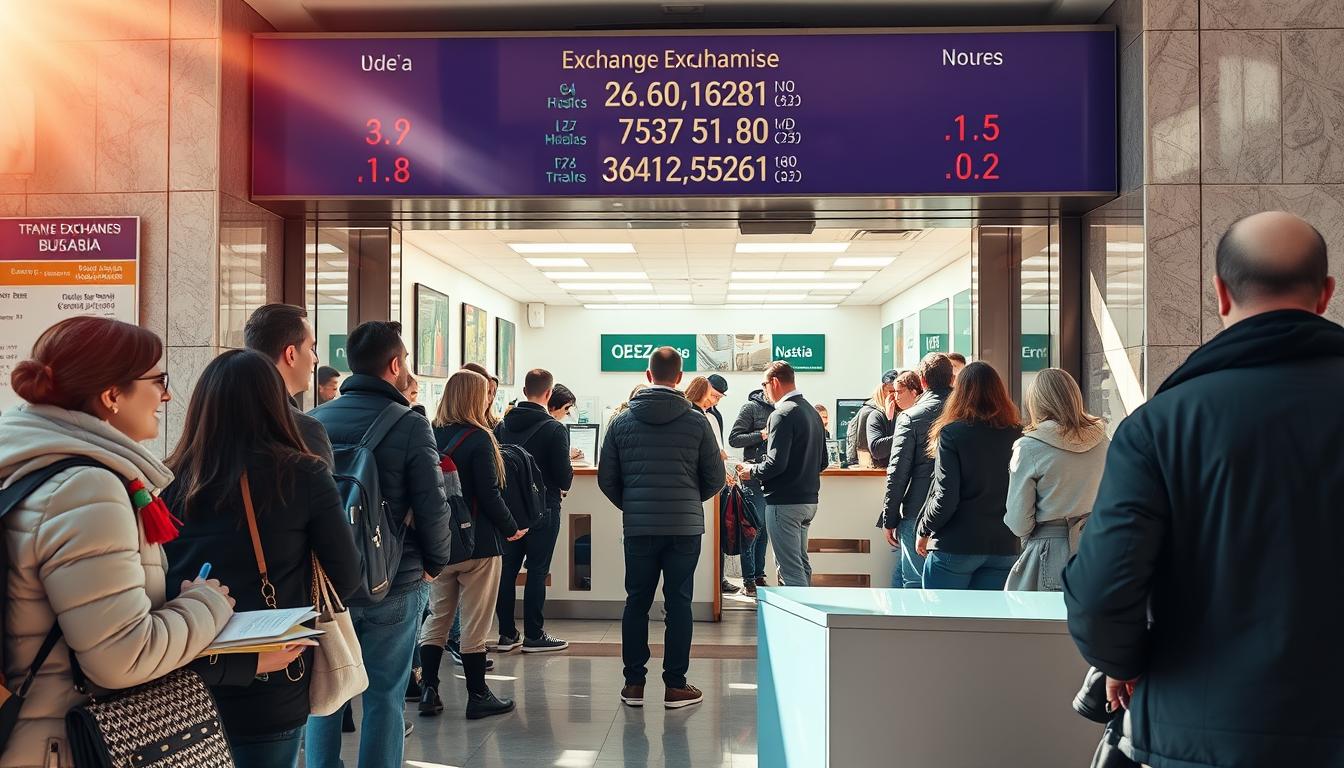✓ Accommodations ✓ Flights ✓ Rental Cars ✓ Tours & Activities
Did you know that 1 US Dollar (USD) is approximately 0.92355 Bulgarian Lev (BGN) at the mid-market exchange rate? Understanding this rate can save you money and make your trip smoother.
Planning your finances is a key part of any travel experience. Knowing how to exchange your currency and manage your money can help you avoid unnecessary fees and enjoy your journey stress-free.
This guide will walk you through the best ways to handle your payments, from using cards to carrying cash. You’ll also learn about local costs and how to get the most out of your exchange rate.
Whether you’re exploring cities or rural areas, being prepared with the right currency and payment methods ensures a seamless experience. Let’s dive in and make your trip unforgettable!
Understanding Currency Exchange in Bulgaria
Exchange rates can make or break your travel budget—here’s why. When you exchange money, the rate you get isn’t always the same as the one you see online. This difference can add up, especially if you’re not paying attention.
Defining the Mid-Market and Markup Rates
The mid-market rate is the real exchange rate used by banks and financial institutions. It’s the rate you’ll find on conversion sites like Google or XE. However, when you exchange currency, providers often add a markup fee. This means you’ll pay more than the mid-market rate.
For example, if the mid-market rate is 1 USD = 1.8 BGN, a provider might offer you 1 USD = 1.75 BGN. That small difference can cost you more over time. Always compare the offered rate with the live mid-market rate to avoid overpaying.
How Rates Affect Your Travel Budget
Understanding these rates is critical for managing your money. A better exchange rate means more value for your cash. This can help you save on costs like meals, transport, and accommodation.
Here’s a tip: Use online tools to monitor live exchange rates before you travel. This way, you’ll know when to exchange your money for the best deal. Planning ahead ensures you maximize your budget and avoid unnecessary fees.
Whether you’re using cash or a card, knowing the rates can make your trip smoother. It’s all about getting the most out of your money.
Checking the USD to BGN Mid-Market Rate
Understanding the current exchange rate helps you make smarter financial decisions during your trip. The mid-market rate is the benchmark for currency conversion, and knowing it ensures you get the best value for your money.

Using Online Conversion Tools
Online tools like Google, XE, and TransferGo provide live updates on the USD to BGN rate. These platforms are reliable and easy to use. Simply enter the amount you want to convert, and you’ll see the current mid-market rate.
For example, as of today, 1 USD equals approximately 1.13 BGN. This rate fluctuates daily, so checking it regularly can help you decide when to exchange your money.
Monitoring Live Exchange Fluctuations
Small changes in the exchange rate can impact your budget. A slight increase in the rate means more BGN for your USD, giving you extra spending power. Conversely, a drop could cost you more.
Here’s a tip: Use apps like Revolut or Wise to monitor live rates. These tools also notify you when the rate is favorable, helping you save on fees and maximize your money.
| Tool | Features | Best For |
|---|---|---|
| Quick rate checks | Basic conversions | |
| XE | Live updates | Detailed analysis |
| TransferGo | Low fees | International transfers |
Cross-referencing multiple sources ensures you’re getting an accurate rate. Staying updated allows you to choose the best time to exchange your money, whether you’re using cash, a card, or an ATM.
Preparing Your Money Before You Travel to Bulgaria
Getting your money ready before your trip can save you time and stress. Exchanging your currency in advance ensures you’re prepared for your journey and helps you avoid unnecessary fees. Here’s why planning ahead is a smart move.
Why Exchange Before You Go?
Converting your money before you arrive can secure better rates. Local exchange offices often charge higher fees, especially in tourist areas or airports. By pre-exchanging, you lock in a favorable rate and save on costs.
Advanced preparation also saves time. You won’t need to search for exchange services upon arrival, letting you focus on enjoying your trip. Plus, having local currency on hand makes it easier to pay for transportation, meals, and other essentials right away.
Tips for Pre-Exchanging Your Money
- Use reputable providers: Platforms like Wise offer low-cost exchange services with transparent fees.
- Monitor rates: Exchange when the rate is favorable to maximize your budget.
- Plan your budget: Knowing how much BGN you’ll need helps you avoid overspending or running out of cash.
Preparing your funds in advance minimizes worries about fluctuating rates during your trip. It’s a simple step that can make your travel experience smoother and more enjoyable.
Tips for Exchanging Money in Bulgaria
Handling your finances efficiently while traveling starts with knowing where and how to exchange your money. Whether you prefer cash or cards, understanding your options can save you time and avoid unnecessary fees.
Where to Find Reliable Currency Exchange Providers
Finding trustworthy places to exchange your money is crucial. Look for reputable providers like Wise or local banks, which often offer better rates than airport kiosks. Online services are also a great option for low-cost, transparent exchanges.
Here are some reliable options:
- Local Banks: Often provide competitive rates with minimal fees.
- Online Platforms: Services like Wise offer live rates and low transaction fees.
- Exchange Offices: Stick to well-reviewed locations in city centers.
Always compare the offered rate to the mid-market rate to ensure you’re getting a fair deal.
Pros and Cons of Exchanging Cash vs. Using Cards
Both cash and cards have their advantages. Carrying cash is useful for small purchases and in areas where cards aren’t accepted. However, cards offer security and convenience, especially for larger transactions.
Here’s a quick comparison:
| Method | Pros | Cons |
|---|---|---|
| Cash | Accepted everywhere, no transaction fees | Risk of loss or theft |
| Cards | Secure, convenient for large purchases | Potential hidden fees, not accepted everywhere |
Using a travel debit card from providers like Wise can help you avoid high fees and access favorable exchange rates.
By planning ahead and choosing the right method, you can make your travel experience smoother and more cost-effective.

Payment Options: Cash, Debit, and Credit
Managing your money wisely while traveling involves knowing the best payment options available. Whether you prefer cash, a debit card, or a credit card, understanding when and how to use each can save you time and money.
When to Use Cash for Small Purchases
Carrying cash is essential for small purchases and tips. Many local vendors, taxis, and small shops may not accept card payments. Having cash on hand ensures you’re prepared for these situations.
For example, tipping in restaurants or paying for public transport often requires cash. It’s also useful in rural areas where card acceptance is limited. Always keep a small amount of local currency for convenience.
Benefits of Multiple Payment Methods
Using a mix of cash, debit cards, and credit cards offers flexibility. Cards are ideal for larger transactions at hotels, restaurants, and shops. They’re secure and often come with rewards or cashback options.
Here’s why multiple methods work best:
- Cash: Perfect for small, everyday expenses.
- Debit Cards: Great for ATM withdrawals and budget tracking.
- Credit Cards: Useful for larger purchases and earning rewards.
Understanding Dynamic Currency Conversion
Dynamic Currency Conversion (DCC) allows you to pay in your home currency instead of the local one. While it sounds convenient, it often comes with hidden fees and poor exchange rates.
For example, if you’re asked to pay in USD instead of BGN, you might end up paying more. Always choose to pay in the local currency to avoid unnecessary costs. Check your card’s foreign transaction fees beforehand to stay within your budget.
By balancing cash and card payments, you can enjoy a seamless travel experience. Plan ahead, and you’ll make the most of your money while exploring new places.
Using Debit Cards for Hassle-Free Payments
Using a debit card while traveling can simplify your financial management and save you money. It’s a convenient way to handle payments without carrying large amounts of cash. Plus, many travel debit cards offer low fees and transparent exchange rates, making them ideal for international use.
Choosing a Low-Fee Travel Debit Card
When selecting a travel debit card, focus on minimizing fees. Look for cards with low or no foreign transaction fees and competitive exchange rates. Providers like Wise are excellent options, offering transparent rates and minimal hidden charges.
Here’s what to consider:
- Exchange Rates: Ensure the card uses the mid-market rate for conversions.
- ATM Withdrawal Fees: Choose a card that reimburses or minimizes these fees.
- Mobile App Features: Instant notifications and spending limits help you stay in control.
For example, Wise allows you to hold multiple currencies and withdraw cash at favorable rates. This flexibility ensures you’re prepared for any travel situation.
Benefits of Using a Travel Debit Card
A travel debit card simplifies money management abroad. You can track expenses in real-time, set spending limits, and avoid the risks of carrying cash. Many cards also offer rewards or cashback, adding extra value to your payments.
Proper planning can reduce unexpected fees and improve convenience. By choosing the right card, you’ll enjoy a seamless experience while exploring new destinations.
“Using a travel debit card from Wise saved me hundreds in fees during my trip. The app made it easy to manage my budget and track expenses.” – Frequent Traveler
Customer reviews highlight the reliability of these cards, making them a trusted choice for travelers. Whether you’re making purchases or withdrawing cash, a debit card ensures you’re always prepared.
Prepaid Cards: Setting Up Your Travel Budget
Prepaid travel cards are a smart way to manage your spending while abroad. Unlike debit or credit cards, these cards allow you to preload funds, helping you stick to your budget and avoid overspending. They’re a secure and convenient option for handling your money during your trip.
How Prepaid Cards Can Help Manage Spending
Prepaid travel cards work by allowing you to load a specific amount of money onto the card before your trip. This ensures you only spend what you’ve budgeted, making it easier to track expenses. Many cards also offer mobile apps for real-time spending updates.
Here are some key benefits:
- Fixed Budgets: Preloading funds helps you avoid overspending.
- Low Fees: Many cards have minimal or no ATM and transaction fees.
- Security: If lost or stolen, the card can be easily replaced without affecting your bank account.
For example, providers like Travelex and Netspend offer cards with straightforward fee structures and low exchange rates. This makes them a cost-effective choice for travelers.
| Provider | Features | Best For |
|---|---|---|
| Travelex | Low ATM fees, multi-currency support | Frequent travelers |
| Netspend | No foreign transaction fees, mobile app | Budget-conscious travelers |
“Using a prepaid travel card helped me stay within my budget and avoid unnecessary fees. It’s a must-have for any trip.” – Satisfied Traveler
By comparing card features, you can choose the one that best meets your travel needs. Prepaid cards offer flexibility, security, and peace of mind, making them an excellent choice for managing your money abroad.
Credit Cards for Rewards and Flexibility
Using a credit card while traveling can unlock valuable rewards and simplify your payments. Many cards offer cashback, points, or miles on travel and dining expenses, making them a smart choice for frequent travelers. For example, the Chase Sapphire Preferred card provides 2x points on travel and dining, which can add up quickly.
One of the biggest advantages of using a credit card is the ability to pay for expenses after you return home. This flexibility can help you manage your money better, especially during longer trips. Plus, some cards offer interest-free periods, giving you time to settle your bills without extra costs.

When selecting a card, look for options with no foreign transaction fees. Cards like the 28 Degrees Platinum are designed for international use, offering competitive exchange rates and minimal hidden charges. Avoiding these fees can save you a significant amount over time.
Here are some tips for choosing the right card:
- Compare rewards programs: Look for cards that align with your spending habits, such as travel or dining.
- Check for additional perks: Some cards offer travel insurance, lounge access, or rental car coverage.
- Read the fine print: Understand the card’s fees, interest rates, and terms before applying.
By selecting a travel-optimized credit card, you can enjoy added benefits while keeping costs low. For instance, the Chase Sapphire Preferred card includes trip cancellation insurance and baggage delay coverage, providing extra peace of mind.
“Using the Chase Sapphire Preferred card transformed my travel experience. The rewards and perks made every trip more enjoyable.” – Frequent Traveler
Comparing different offers ensures you find a card that suits your needs. Whether you’re earning points, avoiding fees, or enjoying extra perks, a well-chosen credit card can enhance your travel experience.
Security Tips for Handling Cash and Cards in Bulgaria
Protecting your money while traveling ensures peace of mind. A few simple steps can help you keep your cash and cards safe, whether you’re exploring cities or rural areas.
Keeping Your Money Safe on the Go
When traveling, it’s wise to split your funds. Carry a small amount of cash for daily expenses and store the rest in a secure location, like a hotel safe. This reduces the risk of losing everything if your wallet is stolen.
For ATM withdrawals, choose machines located in well-lit, secure areas. Always cover the keypad when entering your PIN and check for skimming devices. Monitoring your account regularly helps you spot any suspicious activity quickly.
Be cautious when exchanging money. Avoid unsolicited offers from strangers, as they may involve scams. Stick to reputable exchange offices or banks to ensure fair rates and secure transactions.
Using Travel-Friendly Cards for Added Security
Travel-friendly cards often come with built-in security features, such as fraud alerts and instant transaction notifications. These cards minimize the risk of unauthorized use and provide peace of mind during your trip.
If your card is lost or stolen, report it immediately to your bank. Most providers offer 24/7 support to block the card and issue a replacement. This quick action prevents further issues and protects your funds.
By following these tips, you can enjoy your trip without worrying about your money. Stay alert, plan ahead, and choose secure payment methods to make your journey smooth and stress-free.
Avoiding Foreign Transaction and ATM Fees
Hidden fees can quickly add up during international travel, but with the right knowledge, you can avoid them. From foreign transaction fees to ATM withdrawal charges, understanding these costs helps you save money and stay within your budget.

How to Identify Hidden Charges
When using your card abroad, you might encounter unexpected fees. These can include foreign transaction fees, which are typically 1-3% of the total payment. Some banks also charge a flat fee for international ATM withdrawals.
Another common hidden cost is dynamic currency conversion. This occurs when you’re asked to pay in your home currency instead of the local one. While it seems convenient, the exchange rate used often includes hidden charges, increasing your overall cost.
To avoid these fees, always choose to pay in the local currency. Additionally, read the fine print on your card agreement to understand all potential charges.
Tips on Selecting Fee-Free Providers
Not all financial providers charge high fees. Some offer fee-free or low-cost services for international travelers. Here are a few tips to help you choose the right provider:
- Compare ATM networks: Use ATMs affiliated with your bank to avoid additional withdrawal fees.
- Look for low-fee cards: Providers like Wise offer competitive exchange rates and minimal transaction fees.
- Check for partnerships: Some banks partner with overseas institutions to reduce or waive international fees.
Here’s a comparison of popular providers and their fee structures:
| Provider | Foreign Transaction Fee | ATM Withdrawal Fee |
|---|---|---|
| Wise | 0% | Low or free |
| Bank of America | 3% | $5 + 3% |
| Chase Sapphire | 0% | $5 |
By researching providers and understanding their fee structures, you can make informed decisions and save on unnecessary costs.
Being aware of hidden charges empowers you to manage your money better while traveling. Choose the right card, compare exchange rates, and always pay in the local currency to maximize your savings.
Insights on Daily Expenses and Cost of Living in Bulgaria
Planning your daily expenses while traveling can make your trip more enjoyable and stress-free. Understanding the cost of accommodation, meals, and transportation helps you create a realistic budget and avoid overspending.
Budgeting for Accommodation, Meals, and Transport
Accommodation is one of the biggest expenses during your trip. In major cities, a mid-range hotel can cost around 74 USD per night, while smaller towns offer more affordable options. Booking in advance often secures better prices.
Meals are another key expense. A meal at an inexpensive restaurant averages 17 USD, while a three-course dinner for two in a mid-range restaurant costs about 25 USD. Local markets and street food are great ways to save money.
Transportation is relatively affordable. A monthly public transport pass in cities like Sofia costs around 35 USD. Taxis and ride-sharing services are also convenient but slightly more expensive.
Managing Daily Transactions Efficiently
Using a mix of cash and cards ensures flexibility. Cash is ideal for small purchases, while cards are safer for larger transactions. Always check for foreign transaction fees when using your card abroad.
Here’s a quick comparison of daily expenses in major cities:
| City | Accommodation (per night) | Meal (per person) | Transport (monthly pass) |
|---|---|---|---|
| Sofia | 74 USD | 17 USD | 35 USD |
| Plovdiv | 60 USD | 15 USD | 30 USD |
| Varna | 70 USD | 18 USD | 33 USD |
“Understanding local prices and planning ahead made my trip so much smoother. I could enjoy every moment without worrying about overspending.” – Frequent Traveler
By keeping these tips in mind, you can manage your money effectively and make the most of your travel experience. Whether you’re exploring bustling cities or serene countryside, a well-planned budget ensures a stress-free journey.
Bulgaria: Ultimate Travelers Guide to Currencies & Payments – Expert Insights
Maximizing your spending power abroad starts with smart currency strategies. Whether you’re a frequent traveler or planning your first trip, these expert tips will help you get the most out of your money.
Pro Tips for Maximizing Your Currency’s Value
Getting the best exchange rate requires planning. Use online tools like Wise to monitor live rates and exchange when the rate is favorable. Avoid airport kiosks and tourist areas, as they often charge higher fees.
Here are some advanced strategies:
- Negotiate fees: Some providers may waive fees if you exchange larger amounts.
- Use multi-currency cards: Cards like Wise allow you to hold multiple currencies and convert at the mid-market rate.
- Monitor fluctuations: Exchange rates can shift daily. Timing your exchange can save you money.
Real-Life Examples from Frequent Travelers
Experienced travelers often share valuable insights. For example, one traveler saved hundreds by using a Wise card for all transactions. “The low fees and transparent rates made a huge difference,” they said.
Another tip is to always pay in the local currency to avoid foreign transaction fees. One traveler shared, “I learned the hard way that paying in USD costs more due to hidden fees.”
“Using a travel card from Wise transformed my trips. I could focus on enjoying my journey instead of worrying about fees.” – Frequent Traveler
By following these tips and learning from others, you can make smarter financial decisions and enjoy a stress-free travel experience.
Conclusion
Planning your finances wisely ensures a stress-free journey and maximizes your spending power. Understanding exchange rates and fees is essential for managing your money effectively. Always compare rates and use trusted providers to avoid hidden fees.
Using a mix of cash, debit, and credit cards offers flexibility and security. Carry cash for small purchases and rely on cards for larger transactions. This balance helps you stay prepared for any situation.
By leveraging expert insights and monitoring live rates, you can make smarter financial decisions. Enjoy your travel knowing your money is well-managed in the country. With careful planning, you can focus on creating unforgettable memories.
The above is subject to change.
Check back often to TRAVEL.COM for the latest travel tips and deals.
Here are some Tours & Sightseeing suggestions that might pique your interests!






